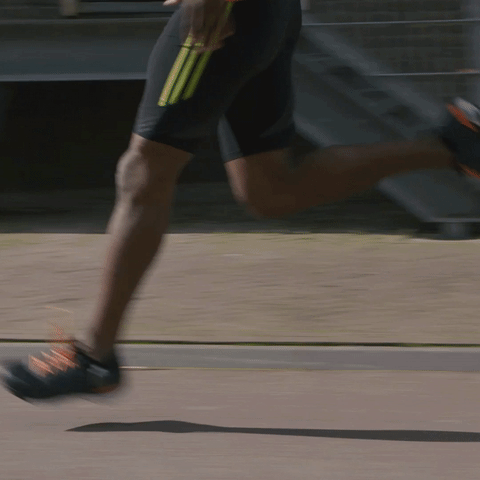top of page

"Disappear in Kick"
1500 running shoes designed for 2024 Paris Olympics


Start
End
Introduction of 1500-meter race
-
3 3/4 laps around 400m track
-
Olympics Final: 12 athletes
Different phases in 1500-meter races
The Start
Begin the race with a fast surge and try to establish a position in the second or third lane in the first 100m.
Mid Race(Mid-foot Strike)
In the mid race phase, athletes keep a designed or planned pace, to be ready for the final kick.
The Kick(Forefoot Strike)
Athletes usually start accelerating the last 300m, maintaining sprint speed for the last 200m.

Biomechanics Analysis of 1500m
Mid-Foot strike in Mid race

-
Lands on the ball of foot
-
Heel drops after
-
Propels from thumb
Forefoot strike in the Kick

-
Lands on the ball of foot
-
Heel stays up
-
Contact point directly under center of mass
What if
1500m shoes change between mid race and the kick (last 300m)?
-
Speed and foot contact is different in Mid Race and the Kick.
-
Current 1500m running shoes stay the same throughout the race.

-
From Ethiopian
-
Born in 1998
-
Likely to represent Ethiopian in 2024 Olympics
-
Junior World Champion
-
The Kick phase is very important in her strategy
Athlete - Alemaz Samuel
Ideation - "What if"
Designing for 'WHY" beyond the obvious





What if shoes are designed on-site like a painting on athlete's feet?
What if weaving patterns are used in
a larger scale?
What if shoes adapted to each
phase of the race in 1500m?
What if the sole can expand?
What if shoes can adapt to track change?
-Marshmallow Sole
Ideation - "vs"
Designing for current compromises





Weight vs. Traction
Resistance vs. Traction
Weight vs. Traction
Weight vs. Traction
How minimal can the plate design be while maintaining the same functionality?
Not needed anymore?
MAKE IT DISAPPEAR!
How could we
make different shoe components only exist when they are needed?
-
Getting rid of components that are no longer needed in Kick phase
-
Make usage of very part of the shoe efficient during all phases in the race.
Design Direction - Disappearing Heels
Because athletes are mostly no longer making heel contacts in Kick phase, heel cushions are no longer needed in Kick phase.
The main idea of the whole shoe is to get rid of things that are not needed rather than adding more features.

Upper support only in areas needed
Add-on heel cushion that will disappear in Kick phase

Development 1
The plate - a game changer

Plate with flex grooves
Foam layer for forefoot cushioning
Heel cushion that will disappear in Kick phase, also making visual impact
Version 2 - Visual Impact + Biomechanics
Make a statement for the brand during the race




Orthographics


Minimal upper support only in areas needed
Loud heel cushion design to make the disappearing process noticable
Under Amour logo to be seen in the race
More details in perspective

CMF design subjected to Aubrie Smith & Martin Hernandez
Next Step
Design doesn't end here.
1. Material development?
In order to achieve the concept, we are looking for the opportunity of developing a material that reacts to change in temperature/impact/abrasion.
2. Mental acceptance?
How can we make it mentally acceptable for athletes and other parties involved in the races.
According to our further research, some athletes see their gears as amulet.
Should we target the next generation? Should we partner up with youth leagues?
bottom of page